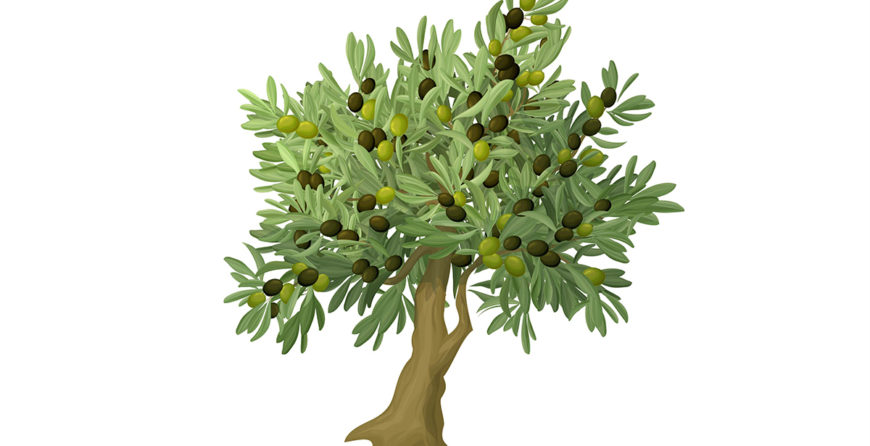I carved the beloved name,
In the shade of the old olive tree
In the roaring of the lifelong sea.
Odysseas Elytis
The olive tree in Greece is a permanent resident since the New Stone Age (Neolithic period), which was an era of development in technology. In the Neolithic period, the growth and development of agriculture, made it possible for people to live in permanent constructions, where cities and towns were formed and people could regularly tend their fields.
The olive tree and its olive oil, culturally has influenced the Greeks since antiquity in every aspect of their life. Other Mediterranean countries have cultivated the olive tree, but only Greece left distinct traces of it, socially, artistically and economically.
It has been the subject of poems and paintings and it made its appearance on coins from time to time. The olive oil and the olive branch were the awards given to the Olympic victors. Olive oil for worshiping the gods, for food, for cosmetics and medicine.
The uniqueness of the Mediterranean culture is owed to the olive tree, its olives and olive oil. The archaeological remains we have of these civilizations, are the evidence of the olive tree’s dominant role in their development.
The legend says that in the beginning of the Olympics, Hercules, the son of Zeus, went to the Hypervoreans (people who lived in the far North part of Greece) and persuaded them to give him the olive tree, which he planted in Olympia (the city where the Olympics took place), next to the Temple of Zeus. From its branches the “Kotinos” was made to crown the Olympic victors. This olive tree was called “Kalistefanos” which means beautiful crown.
Another legend says that Hercules realized that Olympia, on the banks of Alfios river, was exposed to the hot sun, because there were no trees. He planted olive trees, near the race course of the Olympic games. Wood from the olive tree was used to make Hercules’ legendary weapon, the “cudgel” (ropalo).
Philosopher Plato says that Athens should be praised by everybody, because she is god-beloved.
The Athenian historian Thukidides 4th century B.C. says that the olive orchards in Athens, are the fame and glory of the city and the cornerstone of the city’s economy. In the island of Delos, the birth place of Apollo (the god of light) and Artemis (the goddess of hunting), when Leto, their mother (the goddess of motherhood) gave birth to them under the shade of an olive tree, the tree’s leaves turned golden.
The olive tree was sacred and worshiped and had played a major role in the lives of the ancient Greeks. Statutes of gods were made out of the wood of the olive tree.
Asclepios the god of medicine and healing (son of Apollo), received offers of olive branches from patients, asking for his help.
The ancient name of the olive tree is “moria” which comes from “moros” which means “death”. The myth in relation to this, is about the death of the son of Poseidon. Furious about the olive tree, that gave the privilage of Athens’s protection to Athena, and deprived Poseidon of it, he tried to destroy it and died in the process.
Olive tree, a gift from a god to humans!


